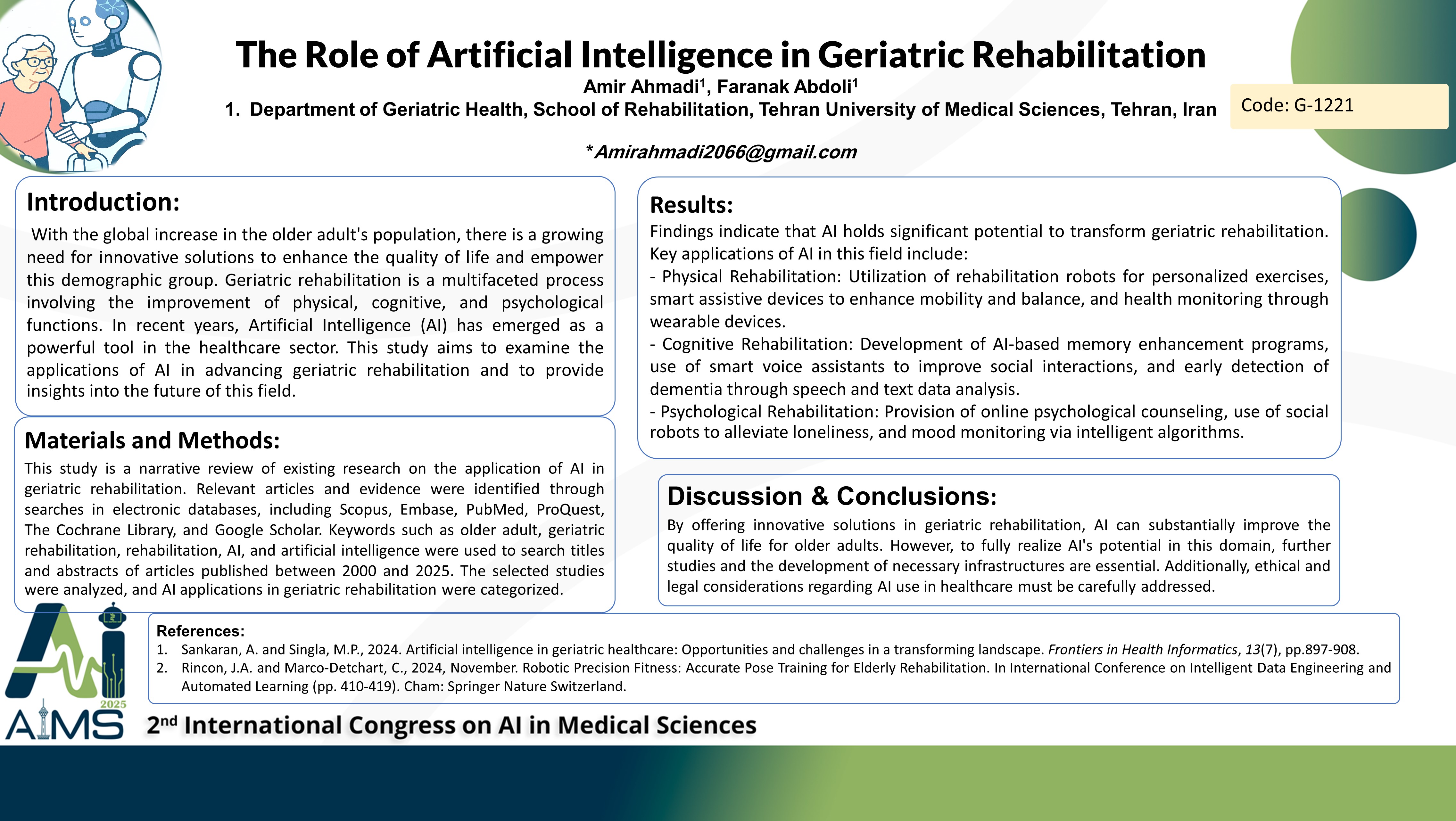نقش هوش مصنوعی در توانبخشی سالمندان
کد: G-1221
نویسندگان: Amir Ahmadi ℗, Faranak Abdoli *
زمان بندی: زمان بندی نشده!
برچسب: سیستم های تصمیم یار بالینی
دانلود: دانلود پوستر
خلاصه مقاله:
خلاصه مقاله
Background and aims: With the global increase in the older adult's population, there is a growing need for innovative solutions to enhance the quality of life and empower this demographic group. Geriatric rehabilitation is a multifaceted process involving the improvement of physical, cognitive, and psychological functions. In recent years, Artificial Intelligence (AI) has emerged as a powerful tool in the healthcare sector. This study aims to examine the applications of AI in advancing geriatric rehabilitation and to provide insights into the future of this field. Method: This study is a narrative review of existing research on the application of AI in geriatric rehabilitation. Relevant articles and evidence were identified through searches in electronic databases, including Scopus, Embase, PubMed, ProQuest, The Cochrane Library, and Google Scholar. Keywords such as *older adult*, *geriatric rehabilitation*, *rehabilitation*, *AI*, and *artificial intelligence* were used to search titles and abstracts of articles published between 2000 and 2025. The selected studies were analyzed, and AI applications in geriatric rehabilitation were categorized and reviewed in three main areas: physical, cognitive, and psychological rehabilitation. Results: Findings indicate that AI holds significant potential to transform geriatric rehabilitation. Key applications of AI in this field include: - Physical Rehabilitation: Utilization of rehabilitation robots for personalized exercises, smart assistive devices to enhance mobility and balance, and health monitoring through wearable devices. - Cognitive Rehabilitation: Development of AI-based memory enhancement programs, use of smart voice assistants to improve social interactions, and early detection of dementia through speech and text data analysis. - Psychological Rehabilitation: Provision of online psychological counseling, use of social robots to alleviate loneliness, and mood monitoring via intelligent algorithms. Conclusion: By offering innovative solutions in geriatric rehabilitation, AI can substantially improve the quality of life for older adults. However, to fully realize AI's potential in this domain, further studies and the development of necessary infrastructures are essential. Additionally, ethical and legal considerations regarding AI use in healthcare must be carefully addressed.
کلمات کلیدی
AI, Older Adults, Geriatric Rehabilitation
